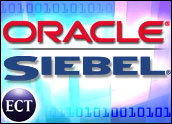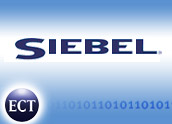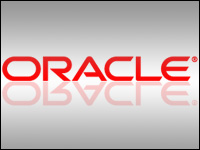
Oracle’s US$5.85 billion acquisition of Siebel is expected to be finalized on Tuesday, after a scheduled vote by Siebel shareholders to approve the transaction, which was first announced in September.
The wait has given Siebel users a chance to contemplate what the future may bring under Oracle parentage. Oracle has gone to great lengths to persuade Siebel users that the change will benefit them, echoing its reassurances to PeopleSoft and JD Edwards customers following the acquisition of those two companies under less-than-ideal circumstances.
Not a Big Concern
Siebel customers, for the most part, appear to be comfortable with the switch, although some are withholding their final verdict to see how events unfold.
Most of the members of a Siebel user group for asset management firms, for example, are confident that the acquisition will not disrupt their operations, said Nanette Cuccia, president and founder of Pyramid, the Forest Hills, NY-based financial-services consulting firm that maintains the group. Most of the members are confident that the acquisition will not disrupt their operations, Cuccia told CRM Buyer.
The group’s roster includes AIM Investments, AllianceBernstein, American Century, American Funds, John Hancock, Merrill Lynch Investment Management, Morgan Stanley/Van Kampen, OppenheimerFunds and UBS Global Waddell & Reed.
“The acquisition hasn’t been a major topic of discussion for the members,” Cuccia commented. “No one has expressed major worries.”
A few issues have raised concern among the membership, though.
“Some have questioned whether Oracle will continue to support all of the existing products, especially its integration work with Microsoft,” Cuccia noted, referring to a marketing and development initiative Microsoft and Siebel launched a few years ago under which Siebel CRM applications would be optimized to the .NET platform.
“They wonder if Oracle will continue to support that,” she remarked.
Whither Microsoft?
Customers don’t have much to worry about on that issue, according to Atul Wahi, CEO of WiseSoft, a Minneapolis, Minn.-based reseller that just joined Siebel’s SMB channel.
“I don’t think it is possible for Oracle to discontinue support of S3E, (the Siebel Exchange Server Sync initiative) because Siebel has become very integrated with the Microsoft suite of tools,” Wahi told CRM Buyer. “There are too many companies that use Microsoft Outlook and Exchange, and no company can ignore that fact. Oracle realizes that.”
Microsoft apparently is being proactive about maintaining that initiative after the acquisition closes. “They have said they want to continue to work with the Siebel application and the integration,” Wahi pointed out.
Forced Migration
A couple of companies in the user group are concerned that customers might be required to migrate to Oracle databases, Cuccia said.
However, during the course of its acquisition binge of the last three years, Oracle has made several statements that suggest it will not do so. A few weeks ago, it reiterated promises to roll out PeopleSoft Enterprise 9 and JD Edwards EnterpriseOne 8.12. A new version of JD Edwards World is planned for 2007.
Fusion — Oracle’s next generation of applications, middleware and architecture — will be open-standards based, the company has said, which will allow customers that deploy systems built on the platform to add and integrate functionality from other vendors.
“We … feel confident that 80 percent of our customers will be able to upgrade to Oracle Fusion Applications,” President Charles Phillips has said.
Too Much to Lose
The general consensus is that Oracle does not want to alienate its newly acquired base — even seemingly captive customers — by strong-arming them into making purchases they do not want. After spending billions on various acquisitions, the theory goes, Oracle has too much to lose if customers start to decamp.
“I don’t believe the Siebel acquisition will affect customers in a negative way,” Wahi maintained.























































